In the following sequence of reactions, products (A) to (H) are formed:
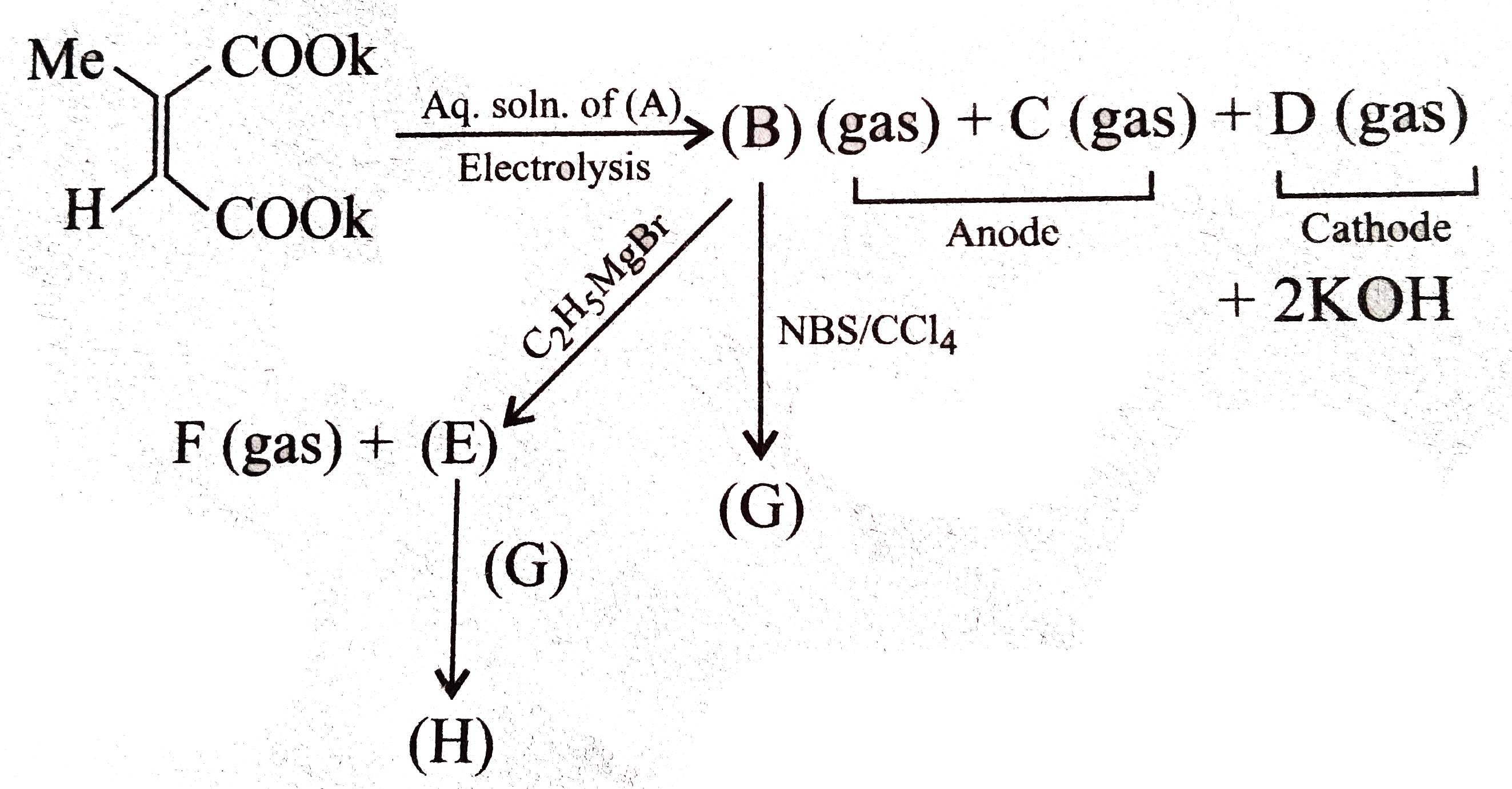
The gases (B), (C), and (D), respectively, are:
(B) (C) (D)––––––––––––––––––––––––––––––(a)HC≡CH CO2 H2
(B) (C) (D)––––––––––––––––––––––––––––––(a)HC≡CH H2 CO2
(B) (C) (D)––––––––––––––––––––––––––––––––––––(a)Me−≡−Me CO2 H2
(B) (C) (D)––––––––––––––––––––––––––––––––––––(a)Me−≡−H H2 CO2
The correct Answer is:C
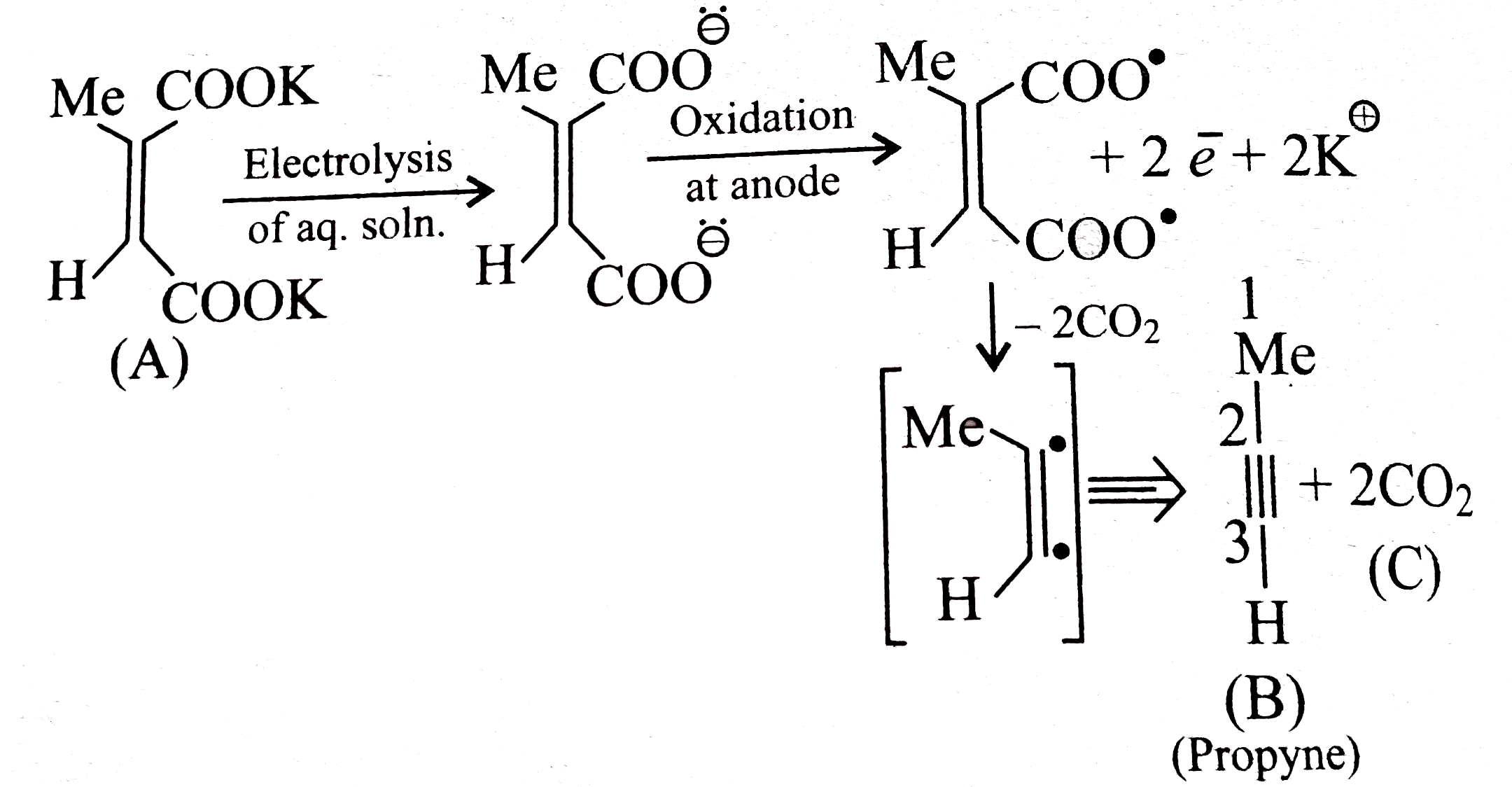
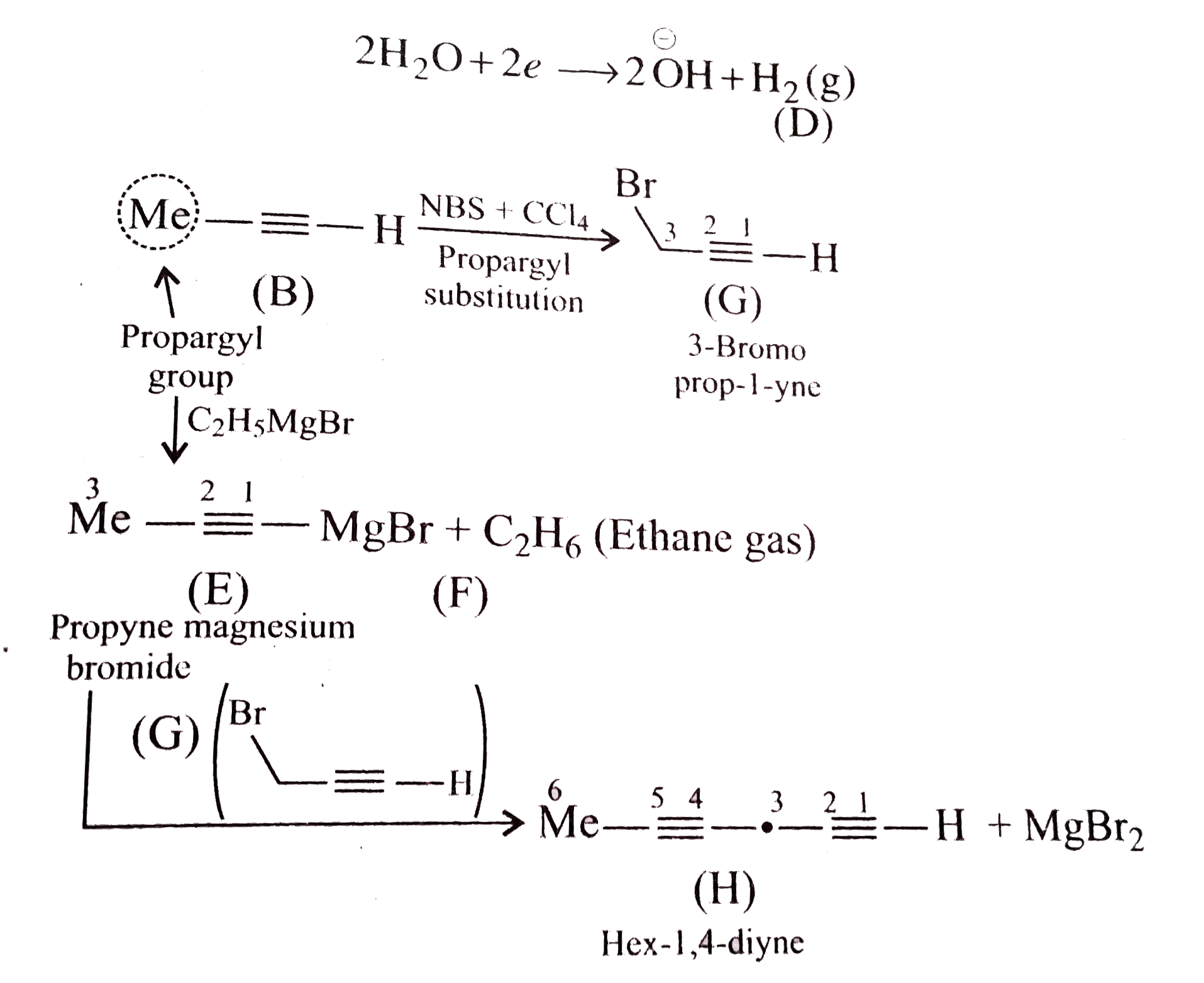
Reduction of H2O takes place at cathode since reduction potential of H2O> reduction potential of K⊕ ions.
Gases B, C, D (propyne, CO2 and H2, respectively), answer is (c).
Topper's Solved these Questions
- ALKYNESBOOK - CENGAGE CHEMISTRY ENGLISHCHAPTER - ALKYNESEXERCISE - Exercises (Multiple Correct Answers Type)
25 Videos
- ALKYNESBOOK - CENGAGE CHEMISTRY ENGLISHCHAPTER - ALKYNESEXERCISE - Exercises (Single Correct Answers Type)
30 Videos
- ALKYNESBOOK - CENGAGE CHEMISTRY ENGLISHCHAPTER - ALKYNESEXERCISE - Exercises (Subjective Type)
31 Videos
- ALKENES AND ALKADIENESBOOK - CENGAGE CHEMISTRY ENGLISHCHAPTER - ALKENES AND ALKADIENESEXERCISE - Single correct Answer
14 Videos
- APPENDIX - INORGANIC VOLUME 1BOOK - CENGAGE CHEMISTRY ENGLISHCHAPTER - APPENDIX - INORGANIC VOLUME 1EXERCISE - chapter-7 Single correct answer
1 Videos
Similar Questions
In the following sequence of reaction
_E01_707_Q01.png)
the product B is :
View SolutionIn the following sequence of reactions, products (B) to (E) are formed:
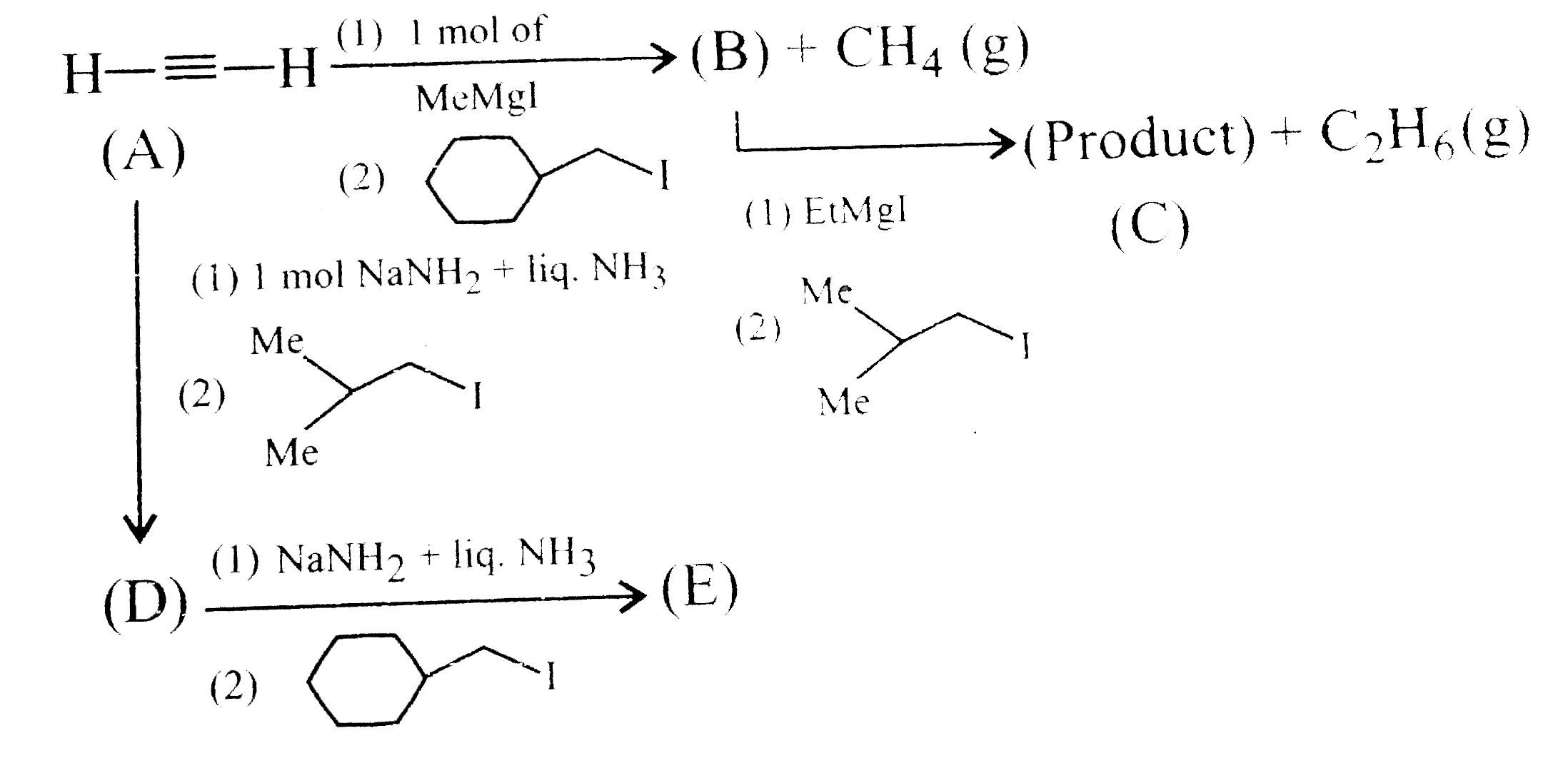
Product (D) is:
View SolutionIn the following sequence of reactions, products (B) to (E) are formed:

Product (C) is:
View SolutionIn the following sequence of reactions, products (B) to (E) are formed:

Product (B) is:
View SolutionIn the following sequence of reactions, products (B) to (E) are formed:

Product (E) is:
View SolutionIn the following sequence of reactions, products A, B, C, D, and E are formed:
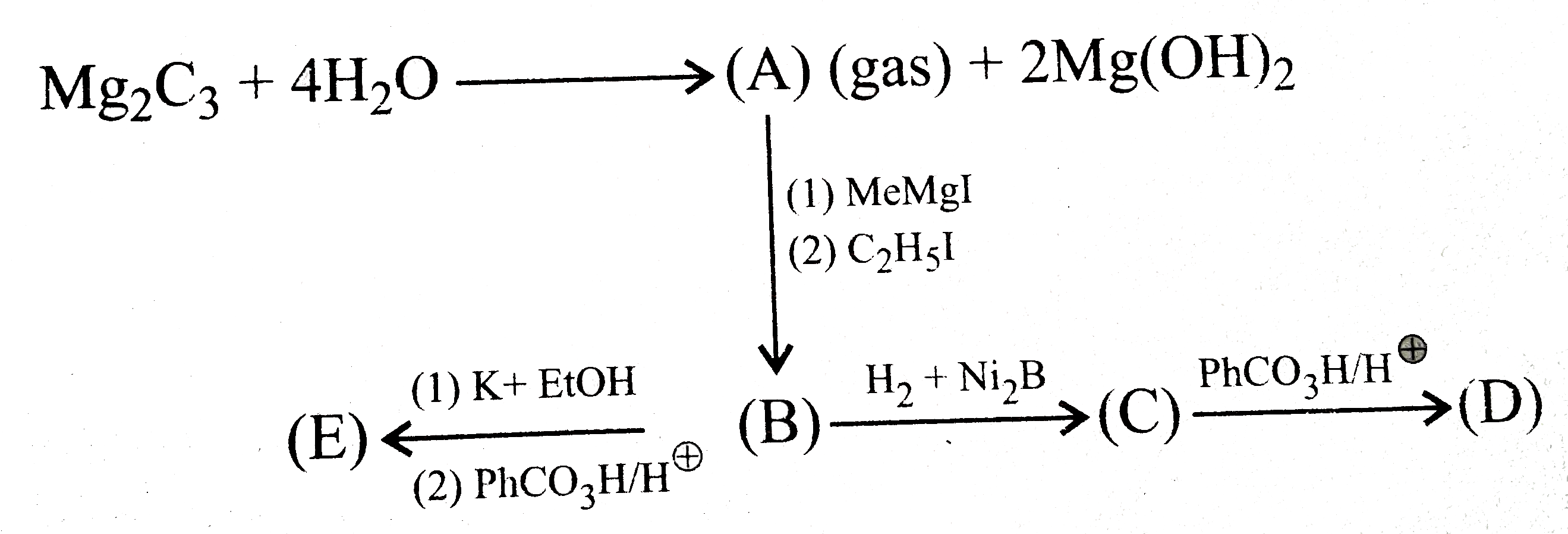
View SolutionIn the following sequence of reactions, products A to D are formed:
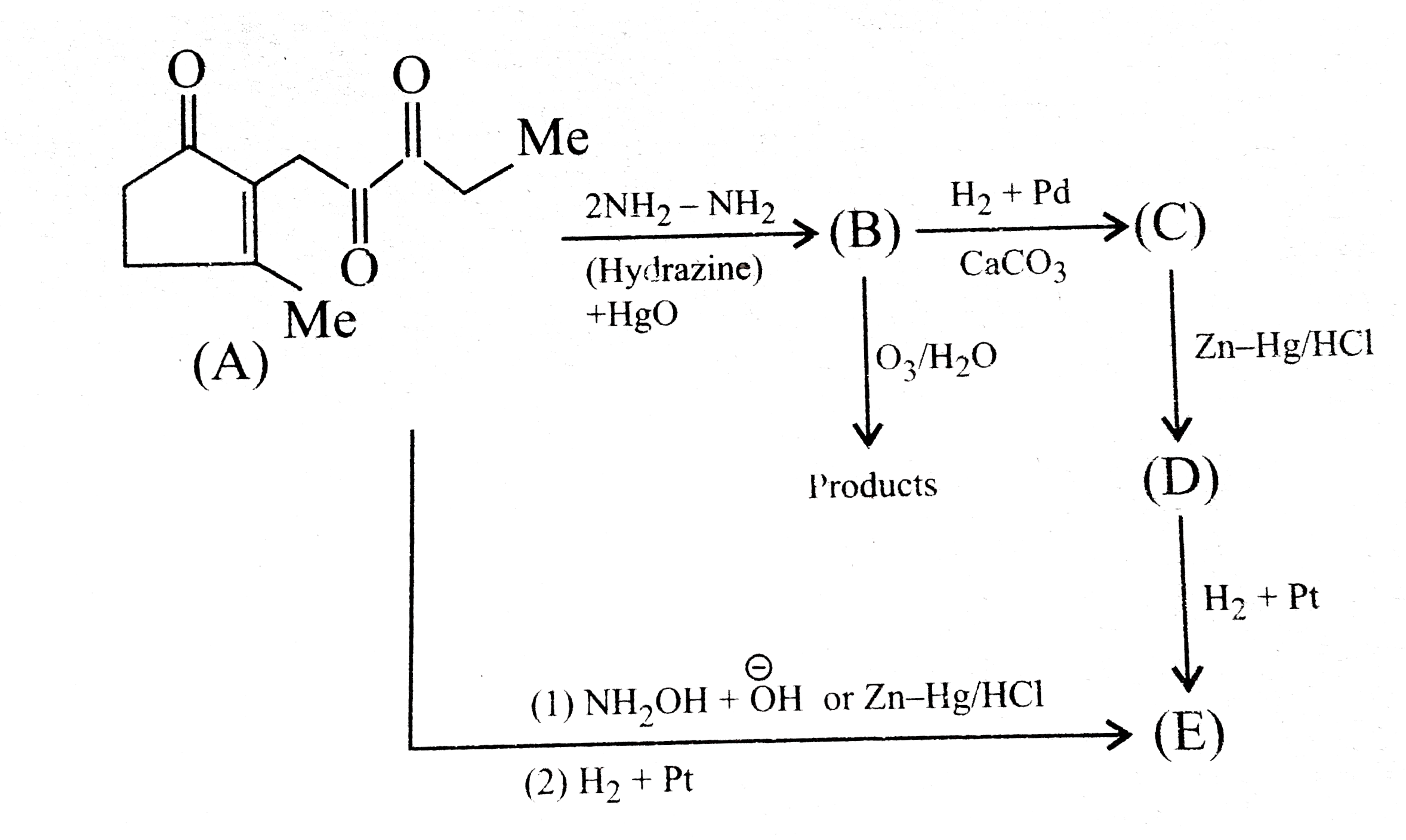
The structure of product (C) is:
View SolutionIn the following sequence of reactions, products A to D are formed:

The structure of product (B) is:
View SolutionIn the following sequence of reactions, products A to D are formed:

The structure of product (D) is:
View SolutionIn the sequence of reactions , . The product B is

View Solution
